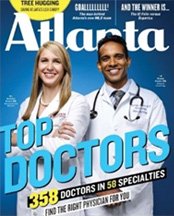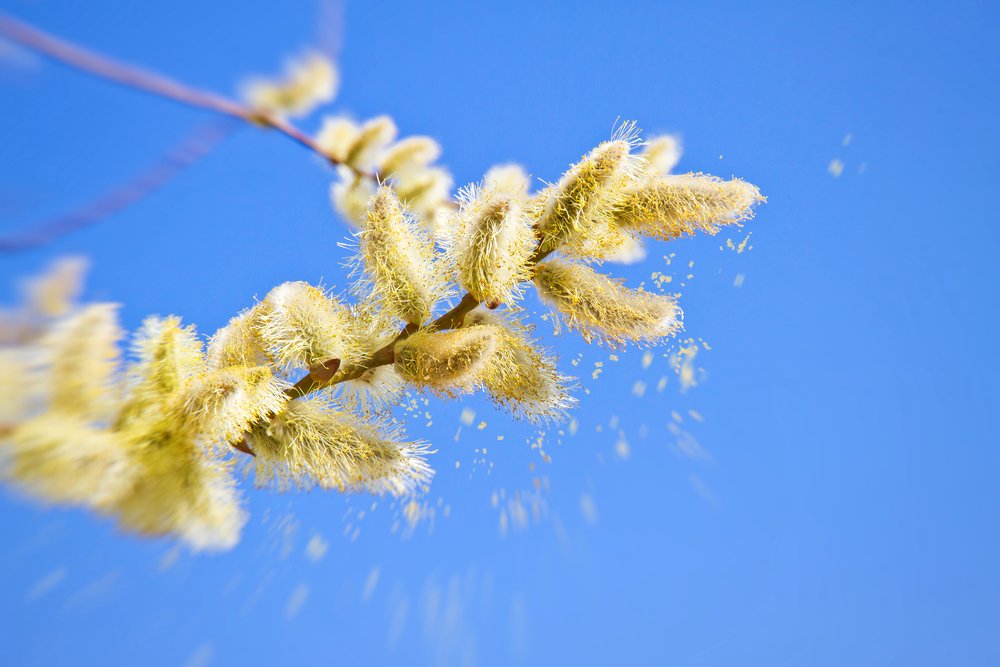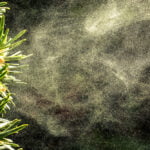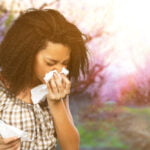Pollen Allergies and the Foods We Eat

Dr. Chacko Featured on the Cover of
Atlanta's Top Doctor Magazine

Spring can be a challenging time for people with allergies. As spring signals the start of hay fever season, plus Atlanta pollen counts typically at high levels overall in springtime, many people will certainly face the impact of allergies. And while hay fever is a common allergy, there are other allergic conditions that people must be aware of.
Cross-Reactivity in Seasonal Allergies
Spring and fall typically bring with them seasonal allergies — and sometimes serious ones. In the case of pollen allergies, many people don’t know that you can experience allergic reactions from pollen present in your food, not just the stuff floating around in the air. In these situations, the allergen isn’t the food itself, but instead the pollen inside it. This is known as Oral Allergy Syndrome.
Triggers That Can Cause Allergy Symptoms
In the spring and fall, when airborne allergens are more common, consuming certain fruits, vegetables, nuts, and seeds can cause the body to mistake a protein in the food for pollen, which can cause or escalate spring and fall allergies.
Symptoms of this “mistake” made by the immune system can include: swelling in the lips or throat, watery eyes, itchy throat or mouth, and tingling in the back of the mouth.
Depending on what allergy you have, avoiding certain fresh fruits and veggies might be the best way to make sure you aren’t causing yourself spring or fall allergies based on the foods you eat. Generally, you might avoid an oral allergic reaction if you stop eating these potential trigger foods: apples, almonds, celery, strawberries, and cherries.
There are still other potential triggers for different kinds of fall or spring allergies. For instance, if you are allergic to grass pollens, you should avoid oranges, tomatoes, melons, and figs. If you’re allergy is to weed pollens, then try avoiding bananas, zucchinis and cucumbers, melons, artichokes, and echinacea, chamomile, and hibiscus teas.
While these lists aren’t comprehensive, most oral allergic reactions are easy to diagnose. You will typically feel the onset of symptoms less than thirty minutes following consumption of the perceived allergen. Figuring out what is causing the allergic reaction should be fairly easy. Using a food journal to keep track of the raw fruits and vegetables that you eat can help you track down which foods are causing the reaction so that you can either remove them from your diet or only eat them when cooked instead.
During the fall and spring especially, boosting your immunity will go a long way in helping mitigate allergy symptoms. Stay hydrated, get plenty of sleep, and exercise daily. In addition, try to minimize your consumption of artificial food coloring, sweeteners, and other additives. Pesticides in food can be common triggers of allergic reactions.
Don’t forget to take natural antihistamines in order to reduce inflammation in your nose and throat during the onset of allergy symptoms. And remember, there are many types of allergies requiring different approaches, so speak to your allergist for a treatment plan.
Learn How to Find Out What Type of Allergy You Have
The best way to find out what type of allergy is impacting you is through allergy testing. Chacko Allergy, Asthma and Sinus Center provides allergy testing from clinic locations in Alpharetta, Atlanta, Canton, Cumming, Druid Hills, Duluth and Johns Creek. Make an appointment today or call us at (678) 668–4688.





